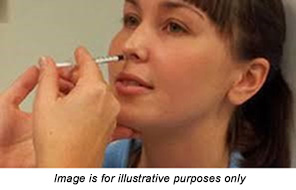NASAL COVID-19 VACCINE
Since March 11th, when WHO had declared the Covid-19 infection as a pandemic, there has been a global race towards developing a vaccine. Currently few vaccines have received approval for emergency use and countries are doing their best to vaccinate their respective population.
The main hurdles with the current intramuscular vaccines being the requirement of 2 doses 3-4 weeks apart, cold storage, and the need to inject large populations in a short time. Clinical trials of these intramuscular vaccines show that they do develop protective neutralizing IgG antibodies after 2 doses, but they do not produce neutralizing IgA antibodies in the respiratory tract which can protect at the initial stage of entry of the virus into host cells.
Experience with the intranasal influenza vaccine has shown that nasal vaccines have the potential to develop neutralizing IgA antibodies in the upper and lower respiratory tract, thereby can protect an individual at the point of entry of the virus. Scientists from Washington University School of Medicine in St Louis, Lancaster University in England, and Texas Biomedical Research Institute in San Antonio have successfully developed nasal Covid-19 vaccines, and the animal studies of these vaccines have shown the development of neutralizing IgA antibodies.

These intranasal Covid-19 vaccines would be key in addressing the current challenges faced by intramuscular vaccines, namely requirement of single-dose, no injections, easy administration in children, and mainly the development of neutralizing IgA antibodies.
Are these game-changers in our fight against the virus? Potentially yes! But not until these vaccines go through Phase 2, and 3 clinical trials, to prove efficacy, that they can be rolled out for large-scale usage.

Author Information
Raju Raghunathan, MD
Associate Consultant Physician, Hospital Medicine,
Medical Subspecialties Institute
Cleveland Clinic Abu Dhabi
 CME Activities Secretariat
CME Activities Secretariat